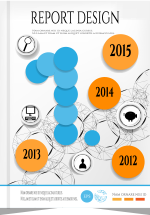Do smart meters used by municipal utilities constitute a government violation of constitutional rights against unreasonable search?
Not according to the U.S. Court of Appeals for the Seventh Circuit. An August ruling on that question was recently decided in favor of the City of Naperville and its public utility. The lawsuit against the municipal, originated by a consumer group in 2011, was first dismissed by a federal trial court before being appealed.While a challenge to utility metering programs on Fourth Amendment grounds might only apply to government-owned utilities, organizations representing cooperative and investor-owned utilities joined the American Public Power Association in filing a friend-of- the-court brief supporting the city.
The court did caution that its decision was narrowly focused to the facts of this case, saying its ruling may have been different if the data being collected by meters was in shorter intervals or made easily accessible to law enforcement.
Consumers and Utilities both Benefit
In light of this decision, it’s important to consider points often overlooked by critics of smart metering:
- Utilities own the metering asset and the data collected is essential not only for billing consumers for the electricity they use, it’s also helping utilities improve reliability and reduce cost of service – both of which are direct benefits to the customer.
- Utilities have done well so far balancing reasonable privacy expectations and the shared benefits of advanced metering. Furthermore, utilities have a better security record than large consumer industries that handle much more sensitive financial information.
- The alternative to a digital grid is wasted energy, fluctuating power quality and a return to the physical presence of meter readers on private property. This is an undesirable condition for the large majority of energy users, and not a realistic scenario for the future.
Smart meters record energy consumption for billing purposes, but also can access voltage readings that help utilities troubleshoot failing equipment before it causes an outage. Having access to interval usage data helps the utility manage load fluctuations and peak demand more effectively, saving money and reducing waste.
Data from smart meters is energy-use specific, while also far more secure compared to most consumer web browser data that search engine companies can access in detail. Search engines data mine consumer online clicks for targeted marketing every day. With the varying standards being applied worldwide, consumer data privacy will continue to be an intriguing area to watch.
It’s clear that the positives of a digital grid outweigh any negatives. But as this court decision illustrates, utilities will need to stay vigilant with consumer outreach, cybersecurity and data protection to maintain that trust moving forward.








Leave a comment